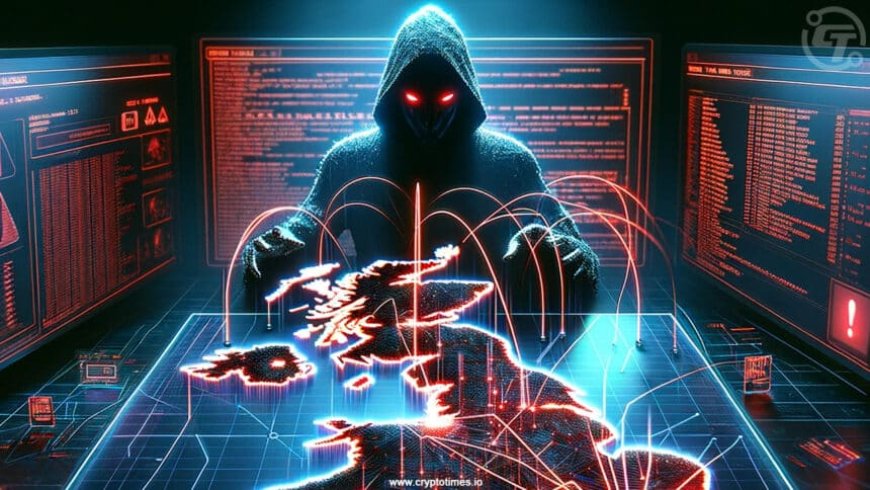What Is a Cyber Attack and How It Can Destroy Your Digital Life
Discover what a cyber attack is, how it can destroy your digital life, and why expert cybersecurity help is key to staying safe online today.

Understand the Power of a Cyber Attack
We live in a digital world where almost everything from our banking to our private messages is connected to the internet. But along with this convenience comes risk. Every day, millions of people and businesses are targeted by cyberattacks. These attacks can steal your money, personal data, and even your identity.
In this article, well explain what a cyber attack is, how it works, and what damage it can cause. Well also explore how to stay safe and why getting help from a cybersecurity expert could save you from major losses.
What Is a Cyber Attack?
A cyber attack is when someone tries to break into your computer system or network. The attackers goal is usually to steal data, cause damage, or take control of your devices. These attacks can target individuals, companies, or even governments.
Hackers use special software or tricks to get into systems. Some attacks are fast and loud, while others can go unnoticed for months. No matter how they happen, cyber attacks can have serious consequences.
Common Types of Cyber Attacks
Here are some of the most common and dangerous kinds of cyber attacks:
1. Phishing
This attack uses fake emails or messages that look real. The goal is to trick you into giving away passwords or clicking on a dangerous link. These emails often pretend to be from banks, coworkers, or popular services. Once you click, malware can be installed, or your login info can be stolen.
2. Malware
Short for malicious software, malware is a harmful program designed to steal data, monitor your activity, or destroy files. Types of malware include viruses, worms, spyware, and Trojans. Malware can hide in downloads, email attachments, or unsafe websites.
3. Ransomware
In this attack, hackers lock your files and demand money (a ransom) to unlock them. Even if you pay, there's no guarantee youll get your data back. Ransomware is often spread through phishing emails and is known to shut down hospitals, schools, and large corporations.
4. Denial-of-Service (DoS)
A DoS attack floods a website or system with traffic, causing it to crash. This is often used to take down services and can be part of a larger attack to distract from other malicious activity happening in the background.
5. Man-in-the-Middle (MitM)
Here, a hacker gets between you and the service youre using like a bank and steals information being sent. This can happen on unsecured public Wi-Fi networks and may go unnoticed until sensitive information has been stolen.
6. SQL Injection
Attackers insert malicious code into websites that use databases, often to steal user info. If a website isnt properly protected, hackers can view, modify, or delete data from the database.
7. Zero-Day Exploits
These are attacks that target software flaws before the developers know about them. Because there's no fix available yet, zero-day attacks are highly dangerous.
8. Credential Stuffing
This attack uses stolen login info from one site to break into other accounts, banking on the fact that many people reuse passwords across platforms.
The Devastating Impact of a Cyber Attack
Cyber attacks can destroy more than just data. Here's how they can wreck your digital life:
- Loss of Personal Data: Hackers can steal your Social Security number, bank details, passwords, and more.
- Identity Theft: Once they have your information, they can pretend to be you, open new credit cards, or commit crimes.
- Financial Damage: You may lose money directly through theft or have to pay to recover your data.
- Emotional Stress: The fear of being watched or losing your data can cause anxiety and emotional strain.
- Reputation Damage: If youre a business, a breach can damage your brand and customer trust.
Real-World Examples
- Colonial Pipeline Attack (2021): A ransomware attack forced a major U.S. fuel pipeline to shut down. It led to fuel shortages and panic buying.
- Equifax Breach (2017): Hackers stole personal data from over 147 million Americans, including Social Security numbers and birth dates.
- Yahoo Data Breach: One of the biggest in history, it exposed 3 billion user accounts.
- Change Healthcare Ransomware (Feb?2024): The ALPHV/BlackCat group disrupted care services at U.S. hospitals and pharmacies, impacted over?100?million records, and forced a $22?million ransom payout
- Snowflake Cloud Breach (May?2024): Hackers exploited stolen credentials to access sensitive data across multiple clients, affecting Ticketmaster, AT&T, and Santander, impacting hundreds of millions of records.
- UBS Supplier Hack (June?2025): Swiss bank UBS was affected indirectly when its vendor, Chain IQ, was breached, exposing names, emails, and phone numbers of 130,000 employees.
These examples show just how destructive a cyber attack can be.
Warning Signs You Might Be Under Attack
- Your computer is running slower than usual
- Youre locked out of accounts or devices
- You notice unknown programs or apps
- Files are missing or changed
- You receive fake-looking emails or alerts
Recognizing the signs early can help you act fast and limit the damage.
Steps to Protect Yourself from Cyber Attacks
Even small steps can make a big difference:
- Use Strong Passwords: Include letters, numbers, and symbols. Avoid using the same password for different accounts.
- Enable Two-Factor Authentication (2FA): Adds an extra layer of security.
- Update Your Software: Always install updates to fix security flaws.
- Avoid Clicking Unknown Links: Dont trust emails or messages from people you dont know.
- Back Up Your Data: Keep copies of your important files in a safe location.
Why a Cybersecurity Expert Is Worth It
A cybersecurity expert is trained to detect and prevent cyber threats. They use advanced tools to monitor your systems, set up firewalls, and teach safe online habits. For businesses and individuals, having an expert on your side can stop small problems from becoming major disasters.
They can also help with:
- Cyber risk assessments
- Recovery after a cyber attack
- Building a long-term security plan
If youre not sure where to start, searching for a ** cybersecurity expert near me** can help you find professionals who can guide you.
One such expert is Dr. Ondrej Krehel, a renowned name in the field. As the founder of LIFARS and a former Chief Information Security Officer, Dr. Krehel has handled some of the most complex cyber incidents. With years of experience in digital forensics and incident response, he helps businesses and individuals recover from attacks, strengthen their defenses, and plan ahead. His leadership and hands-on knowledge make him one of the most trusted names in cybersecurity today.
The Human Element: Dont Be the Weakest Link
Cyber attackers often rely on human error to succeed. Thats why training and awareness are key. Teach your employees or family members how to:
- Spot phishing attempts
- Report suspicious activity
- Safely manage passwords and devices
Staying alert can stop attacks before they happen.
Empower Yourself Against Cyber Threats
Understanding what is cyber attack isn't just for tech experts, its something everyone should know. Whether youre a student, a business owner, or a retiree, knowing the basics of how these attacks happen is your first and best line of defense.
Cyber attacks can hit anyone at any time. They dont just steal data; they can disrupt your entire life. From losing money to having your identity stolen, the effects can be long-lasting and deeply personal. That's why staying informed is so important.
Take action now. Learn the warning signs, use strong passwords, and be cautious with emails and attachments. Better yet, consider partnering with a cybersecurity expert Based in USA who can provide advanced protection and personalized advice.
In a world where every click can be risky, being aware of what a cyber attack is and how to guard against it is the smartest move you can make. Stay alert, stay protected, and take control of your digital life today.




























